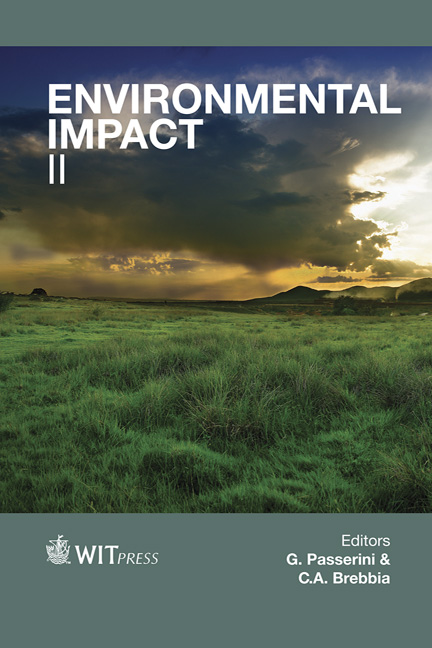The Environmental Compatibility Of Biomass Plants: A Methodological Approach
Price
Free (open access)
Transaction
Volume
181
Pages
12
Page Range
201 - 212
Published
2014
Size
971 kb
Paper DOI
10.2495/EID140171
Copyright
WIT Press
Author(s)
F. Viggiano, D. Panepinto & G. Genon
Abstract
The European Union has an ambitious goal to reach a 20% share of energy from renewable sources in the overall energy mix and so with a policy that is dictated by these objectives, the use of renewable energy in Italy and many other European countries is strongly encouraged by substantial economic subsidies. For these reasons, in Italy the use of biomass energy plants (in this context, we consider these as; the use of residues from forest maintenance, the conversion of available land for energy crops plantation, the rational destination of the solid and liquid manures of livestock and the energy recovery of food waste and waste from agro-industrial activities) are becoming increasingly popular, but it is necessary to evaluate if the use of this type of energy has an environmental and economic convenience. With reference to specific territory situations and by considering the realistic identification of the needs for electric and thermal energy it is necessary to evaluate how much of this energy requirement can be satisfied with energy from biomass and to define the environmental compatibility of biomass plants. These considerations have been applied in a specific area in Italy, Piedmont region (located in North Italy). We considered the possibility to improve the satisfaction of local energy balance and also the deriving aspects of environmental compatibility, with an example of a methodological approach. By using the available biomass in the Piedmont region, we use the tool of energy balance in order to define the potential production of energy and then with the tool of environmental balance, consideration about the agricultural processes, transport of biomass and localization of plants, we try to define the environmental impact deriving from the use of solid and gas biomasses. Keywords: biomass, local compatibility, GHG, air quality, district heating, land utilization.
Keywords
biomass, local compatibility, GHG, air quality, district heating, land utilization.





